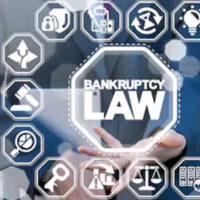Benefits Of A Reorganization Bankruptcy

Both Chapter 11 bankruptcy and Chapter 13 bankruptcy are types of “reorganization” bankruptcy that allow debtors to reorganize debts and to make payments to creditors over the course of an extended period of time. Chapter 11 is a type of reorganization bankruptcy that is often used by businesses, although individuals can also file for Chapter 11 bankruptcy under U.S. bankruptcy law. Chapter 13 bankruptcy is also a type of reorganization bankruptcy, but it is only available to individuals (or to sole proprietors of a business since the business and the individual are the same entity). There are many different benefits of a reorganization bankruptcy, and our West Palm Beach bankruptcy lawyers want to provide you with more information.
Business Owners Can Keep Their Businesses Open
For business owners filing for Chapter 11 bankruptcy do not have to close their businesses. Rather, a business can continue operating through a Chapter 11 bankruptcy.
Homeowners Can Prevent Foreclosure
Chapter 13 bankruptcy—or Chapter 11 when a debtor does not meet the maximum debt limits of Chapter 13 bankruptcy—can allow a homeowner to stop a foreclosure proceeding and can allow that homeowner to stay in their home and get caught up on mortgage payments. The automatic stay will stop the foreclosure process, and then through the repayment plan, the debtor can get caught up on mortgage payments.
Debtors Can Get Caught Up with Creditors
Reorganization bankruptcy allows an individual or a business debtor to get caught up on payments and, more generally, to get caught up with creditors. This can be extremely important for debtors who have secured debt that could otherwise be repossessed.
No Need for Individual Debtors to Pass the Means Test
Chapter 7 bankruptcy for individuals requires an individual to pass something known as the “means test” in order to qualify for bankruptcy. The purpose of the means test is to show that the debtor has few enough assets and income for a liquidation bankruptcy and debt discharge to be abusive. Many debtors cannot pass the means test and are not eligible for Chapter 7 bankruptcy. Chapter 13 bankruptcy (or Chapter 11 when a debtor files for Chapter 11 instead of Chapter 13) does not require the debtor to pass the means test in order to be eligible for bankruptcy protection.
No Liquidation of Any Assets
If you are looking at the distinctions between Chapter 7 bankruptcy (a liquidation bankruptcy) and Chapter 11 or Chapter 13 bankruptcy, perhaps one of the most obvious advantages of a reorganization bankruptcy is that assets will not be liquidated in order to repay creditors. While assets can be taken into account when determining a repayment plan during the course of the Chapter 11 or Chapter 13 bankruptcy, a debtor will not have any assets liquidated as part of the bankruptcy case.
Seek Advice from Our Bankruptcy Attorneys in West Palm Beach
Whether you are thinking about personal bankruptcy and need more information about Chapter 13 and Chapter 11 bankruptcy, or your business needs to file for bankruptcy and you are seeking help with a Chapter 11 case, you should seek advice from one of our West Palm Beach bankruptcy attorneys as soon as possible. Contact Kelley Kaplan Delaney & Eller, PLLC, for more information about Chapter 11 and Chapter 13 bankruptcy.



